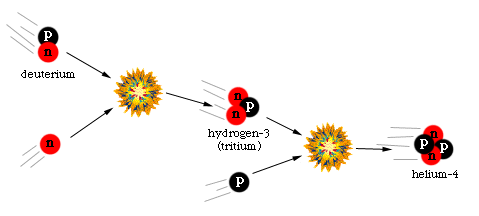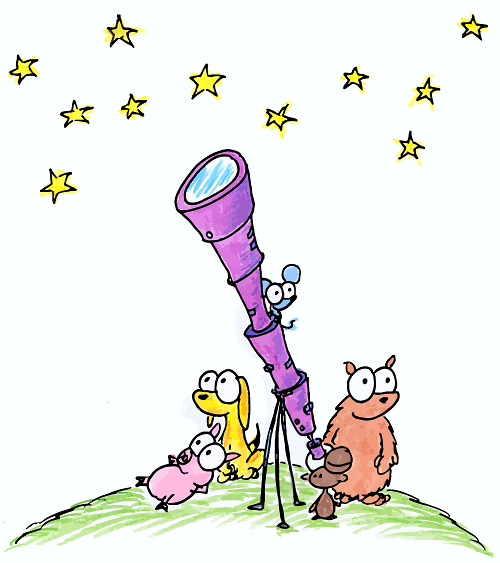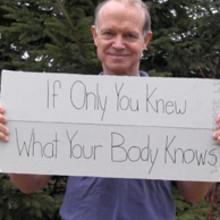

|
1 April 2015
|
|||
|
Humayun to Zobeida You flaunt your beauty in the rose, your glory in the dawn, |
2 April 2015
|
||
|
Good Friday I have not been blessed with the direct experience of God, and the Christian God in particular does not have a place in my spirituality. But listening to Arvo Part’s Te Deum, I can only believe that his experience of God is profound and genuine. I believe this is the Academic Orchestra and Choir of Denmark |
3 April 2015
|
||
|
Evolved for Space Travel Tardigrades have their own phylum, meaning that they are not insects or worms or crustaceans or anything else. Tardigrades have been around as long as any multi-cellular creature known, at least 530 million years. They are big enough to see with the naked eye, just barely, as a speck. They live in the water or on mosses in the forest, and feed on bacteia or algae or tiny worms. They’re in ponds and oceans, all over. They have 8 legs, some have eyes and some don’t. There are over 1,000 different species. They unusual thing about tardigrades is that they are nearly indestructible. You can’t crush them or freeze them or boil them to death. They don’t dry out, but only go into suspended animation that can last at least 10 years. Some say many decades. They survive acid and radiation and the vacuum of space. Why don’t they overrun the earth? Is there someone who can eat and digest them? Do they die of old age? I haven’t found much data. Here is a study that said one species lives 58 days (if they are not driven into hibernation) and lay an average 41 eggs. Here is a paper that describes some natural enemies: “Predators include nematodes, other tardigrades, mites, spiders, springtails, and insect larvae.”— Sci NYTimes article Wikipedia article Micro-video |
4 April 2015
|
||
|
Christ Died for Your Sins You have done something unthinkably evil. But I think I can make it OK. Just trust me and do everything I say, and I’ll take care of you. I’ll protect you from the terrible punishment that would otherwise be coming your way. Trust me. Obey me… It’s easy enough to laugh at this message when we see it stripped bare in front of us, but the message is implanted in us so deeply and so early, by people upon whom we absolutely depend for our infant care, that it should not be surprising if some of its echoes remain lodged in our subconscious, diverting our thought, distorting our good sense. Personally, I have been aware of this scam with my conscious, logical mind since I was an adolescent; and yet I am far from free from its influence within me even today. It’s not just parents who use this message, and not just organized religion that exploits us with fear, guilt and coercion. The State is also deeply manipulative, and most organizations and social institutions derive their legitimacy with appeals to this subversive plant in our psyches. Imagine a world in which people are free of guilt and fear.&bsp; Would you guess that they treat each other better or worse than people in our present culture? — Josh Mitteldorf |
5 April 2015
|
||
|
The Birthday of Pataphysics Pataphysics: the science of imaginary solutions, of laws governing exceptions and of the laws describing the universe supplementary to this one. 1902, April 6 is the Birthday of Pataphysics. It is also the day on which Julien Torma was born, assuming that he existed. Torma wrote three books of poetry and a play during his 31 years, a life cut short by principled suicide or maybe he just got lost. After he was dead Torma wrote 5 more books, including that for which he is best-known, the Definitively Incomplete Writings, published in 2003. By his own account, Torma’s highest achievement was to learn to love boredom, which sounds even worse in French («Ma plus grande découverte a été d’aimer mon ennui.») but which has been exalted as the essence of Tibetan meditation. «Je puisse faire rien, mais c’est déjà de trop.» “My aim then, ultimately, is to locate the root of a person’s well-being, that which grants them their daily sustenance, and then excise it once and for all.” — J. T. |
6 April 2015
|
||
|
Don’t multitask, Take breaks Information overload exacts a real cost. Trying to do two things at once ends up taking more time than finishing one, then moving tol tne other. Taking breaks and naps while working not only improves mental health and feelings of wellbeing, but also increases productivity. These are things I believed already. Perhaps that is why I was so receptive to Daniel Levitin’s video. — Listen to McGill neuroscientist Daniel Levitin, author of The Organized Mind Figuring out what to think about and what to ignore has become our most important executive function. |
7 April 2015
|
||
|
A zen story Once, when a disciple came to a master to be disciplined in the art of fencing, the master, who was in retirement in his mountain hut, agreed to undertake the task. The pupil was made to help him gather wood for kindling, draw water from the nearby spring, split wood, make the fire, cook rice, sweep the rooms and the garden, and generally look after his household affairs. There was no regular or technical teaching in the art. After some time the young man became dissatisfied, for he had not come to work as a servant to the old gentleman, but to learn the art of swordsmanship. So one day he approached the master and asked him to teach him. The master agreed. The result was that the young man could not do any piece of work with any feeling of safety. For when he began to cook rice early in the morning, the master would appear and strike him from behind with a stick. When he was in the midst of his sweeping, he would be feeling the same blow from somewhere, from an unknown direction. He had no peace of mind, he had to be always on the qui vive. Some years passed before he could successfully dodge the blow from whatever source it might come. But the master was not quite satisfied with him yet. One day the master was found cooking his own vegetables over an open fire. The pupil took it into his head to avail himself of this opportunity. Taking up his big stick, he let it fall on the head of the master, who was then stooping over the cooking pan to stir its contents. But the pupil’s stick was caught by the master with the cover of the pan. This opened the pupil’s mind to the secrets of the art, which had hitherto been kept from him. He then for the first time really appreciated the unparalleled kindness of the master. — Daisetz Suzuki, Zen Buddhism and its Influence on Japanese Culture (1938), as quoted by Eugen Herrigel |
8 April 2015
|
||
|
Pleasure Divine
Other translations here |
9 April 2015
|
||
|
Instructions for living a life 1. Pay attention. 2. Be astonished. 3. Tell about it. — Mary Oliver Actually, these are instructions for being a poet. For basic instructions in life, you may stop at #1. |
10 April 2015
|
||
|
Science looks in the mirror Science uses reproducibility and statistics to establish truth. When the same methodology is reflected back on the enterprise of Science itself, the results make you realize what shakey ground our scientific knowledge stands. This is especially true in the bio-medical area, for two reasons: (1) because bio sciences are inherently more variable and uncertain—everyone is different, and (2) because there’s healthcare money at stake in the results, and often the people doing the research are paid by companies that stand to make money if the results come out right.
“Positive results in psychology can behave like rumours: easy to release but hard to dispel. They dominate most journals, which strive to present new, exciting research. Meanwhile, attempts to replicate those studies, especially when the findings are negative, go unpublished…” (read more) As science has become a profession in the 20th Century, success is rewarded with status and money. Perhaps it is easy to see in retrospect that inevitably, politics distorts judgment, and the truth gets left behind. |
11 April 2015
|
||
|
Nursery Rhyme & Dinosaur Dance Listen to Josh Mitteldorf perform Rondo #1 and Rondo #3 from Three Rondos on Folk Themes by Bela Bartok. |
12 April 2015
|
||
|
“I sincerely believe that banking establishments are more dangerous than standing armies, and that the principle of spending money to be paid by posterity, under the name of funding, is but swindling futurity on a large scale.” — Thomas Jefferson, born this day in 1743 |
13 April 2015
|
||
|
‘How did nature manage to breed an animal with the right to make promises?’ — Nietzsche, Genealogy of Morals |
14 April 2015
|
||
|
H, He, Li, Be, B, C Elements 1 through 6 are Hydrogen, Helium, Lithium, Berylium, Boron and Carbon. H, He and C are common everywhere, while Li, Be and B are rare. It’s the electron structure of C that makes life possible. You can’t build large (organic) molecules out of Li or Be or H. C is unique. Luckily there’s a lot of it. “Luckily?” The reason there is H is that it is a single proton, separate, and that’s how the world began. The reason there is He is that in the first 3 minutes of the universe, when matter was still hot and dense, about 1/4 of the H smashed together and stuck, making He. But that was the end of the line. All other elements had to be made in stars, much later. He is pretty stable. There is not much motivation for He be transformed into something else, even in the pressure cooker of a hot star. There is no common, easy process for making elements 3, 4 or 5 (Li, Be and B). But just by chance, the energy of 3 He atoms together is almost exactly the same as an excited state of C. (This has to do with the interactions of the protons and neutrons in the nucleus, not with the electrons that give C its chemical properties.) In quantum physics, there is the strange phenomenon of “resonance”: when two states have very similar energies, there is a natural bridge between them, and either one of them is likely to enter into an ambiguous state where it’s being the other on a part-time basis.
This coincidence is what is responsible for all the C in the world. It happens to be easy to make C from He. (All heavier elements from N=7 and O=8 on up were made from C=6.) As far as we can tell, it’s just a coincidence that allowed C and all heavier elements to be made. Were the constants of nature just a tiny bit different, the world would all be made of H and He. No chance for life. Based on the fact that there’s so much C in the world, Fred Hoyle first predicted this coincidence in 1957, before it was discovered empirically. — JJM |
15 April 2015
|
||
|
Listen to Csurdongolo, by Leo Weiner, born this day in 1885. |
16 April 2015
|
||
|
Quantum Evolution One of the most controversial questions in science is how biological evolution manages to be as efficient as it is. Darwin proposed a mechanism—random variation and natural selection—that only works in small increments, and each increment must provide a little more fitness, so that it is selected and preferentially replicated. But there appear to be features of biology like eyes and wings and the Krebs cycle that are no good for anything unless a whole set of unlikely mutations occur simultaneously. Without some kind of incremental selection, these innovations look very unlikely. A few researchers claim that there is no problem whatever, that every evolutionary leap can be accounted in small steps, but most people who have thought deeply about the question admit that there are major gaps in our understanding. The worst case is the origin of life itself, which seems to require that a lot of unlikely chemistry comes together for the simplest self-replicating system. Johnjoe McFadden has put forward a hypothesis about how to crack this nut. Quantum superpositions might guide evolution on a path toward consciousness. He invokes two precedents. One is the canonical understanding of quantum mechanics, called the Copenhagen Interpretation, which says that a nebulous wave that is many things at once can become reified as a single state when it is observed by a conscious entity. The other is the Quantum Zeno effect, in which incremental measurements of a quantity can actually pull it along a path that bring about a new value of that quantity. Is consciousness a “goal” of evolution, propelled by the Quantum Zeno effect? To paraphrase Richard Feynman, it’s an idea crazy enough that it just might turn out to be true. — JJM |
17 April 2015
|
||
|
Detour I took a long time getting here, much of it wasted on wrong turns, back roads riddled by ruts. I had adventures I never would have known if I proceeded as the crow flies. Super highways are so sure of where they are going: they arrive too soon. A straight line isn’t always the shortest distance between two people. Sometimes I act as though I’m heading somewhere else while, imperceptibly, I narrow the gap between you and me. I’m not sure I’ll ever know the right way, but I don’t mind getting lost now and then. Maps don't know everything. — Ruth Feldman |
18 April 2015
|
||
|
Blessing, I think
May the walls we have built to enclose this day crack open. And when the light shines through and blinds us, May we celebrate when all that we hold dear crumbles to dust. — Josh Mitteldorf |
19 April 2015
|
||
|
The Brain’s Con Job What could it mean when Buddhists and neuroscientist Bruce Hood say “the self is an illusion”? My experience of self is my primary reality, something I know with more certainty than anything. Is there anything you could say that would convince me it is an illusion? I think they mean that the experience of continuity and unity is illusory, that the self is more diffuse and more intermittent than that. And what I am more sure of is that it is a good koan, a subject on which to ponder and lose oneself. “There’s nothing you can do, but there are a lot of actions that might happen, through you.” |
20 April 2015
|
||
|
Extinct is forever. Or maybe not. Jurassic Park got us used to the idea that DNA could be reconstituted from a fossil and used to reconstruct a full genome, and perhaps a full animal that was long extinct. Now science has caught up to science fiction, and genetic scientists say they are close to being able to resurrect the passenger pigeon, extinct for about 100 years. — Ted Talk by Stewart Brand of Whole Earth Catalog fame. |
21 April 2015
|
||
|
Paradise I knew that I had arrived in paradise: The island was a garden but not a garden like Eden with one terrace above another, reaching so high that no deluge could ever touch it. No, this was a Persian garden walled in by ocean; from the edge of the lagoon, I stepped into a rainbow, an ever-expanding universe of water flowers swirling in all directions. The island possessed what the Hopi Indians claimed were the prerequisites for paradise: water, hills, and trees. The water announced itself at once: a clear pool shaded by the tidal ripples dappling its surface, clusters of shimmering purple coral stalks rising from the bottom of the lagoon each ending in a tiny golden ear of corn, a kernel shielding a living creature inside. The water was everywhere, but where were the hills? Impossible to see them if I looked up not down. I stood on the greenest hills imaginable— the coral-encrusted rim of an extinct volcano resting on the ocean floor, so gazing down into the water I gazed on the great green hills from which I had come. And the trees? Perched on the coral rim was a narrow line of palm trees and tropical shrubbery that formed a feathered crown around the lagoon, and with the feathered crown, the birds, nesting along the coral, hundreds of booby birds, as clumsy as clowns until they rose majestically into the air, air that elsewhere was adrift with flocks of white and sooty terns, a skein unwound in the breeze that swept up from the sea to relieve the equatorial heat that beat down incessantly. Clouds would gather along the island's feathered crown and the light rain that fell several times a day became a bead-curtain I thrust aside to peer into a blue-green, rainbow-edged world. And I knew when I did that I had come to an earthly paradise, caught outside of time, constantly refreshed and reforming. — William Jay Smith, born this day in 1918 |
22 April 2015
|
||
|
Just as science can live without certainty, religion can live without dogma, and the two can live together without conflict. — Freeman Dyson, The Scientist As Rebel (2006) |
23 April 2015
|
||
|
“By living in our heads, we have taken on the values of the cranial intelligence, which says intelligence is abstract reasoning. ‘Intelligence’ is a huge spectrum, and abstract reasoning has a valid place in it, but there is so much more. …to be a successful human in Western society means to take control of your being and your actions from the head. — interview with Philip Shepherd, author of New Self, New World |
24 April 2015
|
||
|
For the glory of God Listen to Cum Sancto Spiritu from Bach’s B Minor Mass, performed by the Acadame of Ancient Music, Berlin. A double fugue is what comes out of Bach’s pen when he’s feeling joyous. |
25 April 2015
|
||
|
Pay attention to that which derives neither from your mind nor from any of the five senses, but which comes from everywhere and nowhere, embodying truth without need for reason or evidence. — Josh Mitteldorf |
26 April 2015 |
||
|
Blessing Like the joy of the sea coming home to shore, may the music of laughter break through your soul. — John O’Donohue |
27 April 2015
|
||
|
This is the Honest Truth Me he criado al lado de puritanos revolucionarios I grew up alongside puritan revolutionaries — Roberto Bolaño, born this day in 1953 Write prayers that you will whisper before writing those poems you will think you never wrote. |
28 April 2015
|
||
|
Rhythms Listen to the scherzo from Wallingford Riegger’s Concerto for Piano and Wind Quintet. — Wallingford Riegger, born this day in 1885, was a pedantic, heady serialist who wrote movie music. |
29 April 2015
|
Other translations here
9 April 2015

A zen story
Once, when a disciple came to a master to be disciplined in the art of fencing, the master, who was in retirement in his mountain hut, agreed to undertake the task. The pupil was made to help him gather wood for kindling, draw water from the nearby spring, split wood, make the fire, cook rice, sweep the rooms and the garden, and generally look after his household affairs. There was no regular or technical teaching in the art.
After some time the young man became dissatisfied, for he had not come to work as a servant to the old gentleman, but to learn the art of swordsmanship. So one day he approached the master and asked him to teach him. The master agreed. The result was that the young man could not do any piece of work with any feeling of safety. For when he began to cook rice early in the morning, the master would appear and strike him from behind with a stick. When he was in the midst of his sweeping, he would be feeling the same blow from somewhere, from an unknown direction. He had no peace of mind, he had to be always on the qui vive.
Some years passed before he could successfully dodge the blow from whatever source it might come. But the master was not quite satisfied with him yet. One day the master was found cooking his own vegetables over an open fire. The pupil took it into his head to avail himself of this opportunity. Taking up his big stick, he let it fall on the head of the master, who was then stooping over the cooking pan to stir its contents. But the pupil’s stick was caught by the master with the cover of the pan. This opened the pupil’s mind to the secrets of the art, which had hitherto been kept from him. He then for the first time really appreciated the unparalleled kindness of the master.
— Daisetz Suzuki, Zen Buddhism and its Influence on Japanese Culture (1938), as quoted by Eugen Herrigel
8 April 2015

Don’t multitask, Take breaks
Information overload exacts a real cost. Trying to do two things at once ends up taking more time than finishing one, then moving tol tne other. Taking breaks and naps while working not only improves mental health and feelings of wellbeing, but also increases productivity.
These are things I believed already. Perhaps that is why I was so receptive to Daniel Levitin’s video.
— Listen to McGill neuroscientist Daniel Levitin, author of The Organized Mind
Figuring out what to think about and what to ignore has become our most important executive function.
7 April 2015

The Birthday of Pataphysics
Pataphysics: the science of imaginary solutions, of laws governing exceptions and of the laws describing the universe supplementary to this one.
1902, April 6 is the Birthday of Pataphysics. It is also the day on which Julien Torma was born, assuming that he existed. Torma wrote three books of poetry and a play during his 31 years, a life cut short by principled suicide or maybe he just got lost. After he was dead Torma wrote 5 more books, including that for which he is best-known, the Definitively Incomplete Writings, published in 2003.
By his own account, Torma’s highest achievement was to learn to love boredom, which sounds even worse in French («Ma plus grande découverte a été d’aimer mon ennui.») but which has been exalted as the essence of Tibetan meditation.
«Je puisse faire rien, mais c’est déjà de trop.»
“My aim then, ultimately, is to locate the root of a person’s well-being, that which grants them their daily sustenance, and then excise it once and for all.” — J. T.
6 April 2015

Christ Died for Your Sins
You have done something unthinkably evil. But I think I can make it OK. Just trust me and do everything I say, and I’ll take care of you. I’ll protect you from the terrible punishment that would otherwise be coming your way.
Trust me. Obey me…
It’s easy enough to laugh at this message when we see it stripped bare in front of us, but the message is implanted in us so deeply and so early, by people upon whom we absolutely depend for our infant care, that it should not be surprising if some of its echoes remain lodged in our subconscious, diverting our thought, distorting our good sense.
Personally, I have been aware of this scam with my conscious, logical mind since I was an adolescent; and yet I am far from free from its influence within me even today.
It’s not just parents who use this message, and not just organized religion that exploits us with fear, guilt and coercion. The State is also deeply manipulative, and most organizations and social institutions derive their legitimacy with appeals to this subversive plant in our psyches.
Imagine a world in which people are free of guilt and fear.&bsp; Would you guess that they treat each other better or worse than people in our present culture?
— Josh Mitteldorf
5 April 2015

Evolved for Space Travel
Tardigrades have their own phylum, meaning that they are not insects or worms or crustaceans or anything else. Tardigrades have been around as long as any multi-cellular creature known, at least 530 million years. They are big enough to see with the naked eye, just barely, as a speck.
They live in the water or on mosses in the forest, and feed on bacteia or algae or tiny worms. They’re in ponds and oceans, all over. They have 8 legs, some have eyes and some don’t. There are over 1,000 different species.
They unusual thing about tardigrades is that they are nearly indestructible. You can’t crush them or freeze them or boil them to death. They don’t dry out, but only go into suspended animation that can last at least 10 years. Some say many decades. They survive acid and radiation and the vacuum of space.
Why don’t they overrun the earth? Is there someone who can eat and digest them? Do they die of old age? I haven’t found much data. Here is
a study that said one species lives 58 days (if they are not driven into hibernation) and lay an average 41 eggs. Here is a paper that describes some natural enemies: “Predators include nematodes, other tardigrades, mites, spiders, springtails, and insect larvae.”— Sci NYTimes article Wikipedia article Micro-video
Talk video on tardigrades and panspermia BBC article
4 April 2015

Good Friday
I have not been blessed with the direct experience of God, and the Christian God in particular does not have a place in my spirituality.
But listening to Arvo Part’s Te Deum, I can only believe that his experience of God is profound and genuine.
I believe this is the Academic Orchestra and Choir of Denmark
3 April 2015

Humayun to Zobeida
You flaunt your beauty in the rose, your glory in the dawn,
Your sweetness in the nightingale, your whiteness in the swan.
You haunt my waking like a dream, my slumber like a moon,
Pervade me like a musky scent, possess me like a tune.
Yet, when I crave of you, my sweet, one tender moment’s grace,
You cry, “I sit behind the veil, I cannot show my face.”
Shall any foolish veil divide my longing from my bliss?
Shall any fragile curtain hide your beauty from my kiss?
What war is this of Thee and Me? Give o’er the wanton strife,
You are the heart within my heart, the life within m life.
2 April 2015

1 April 2015















